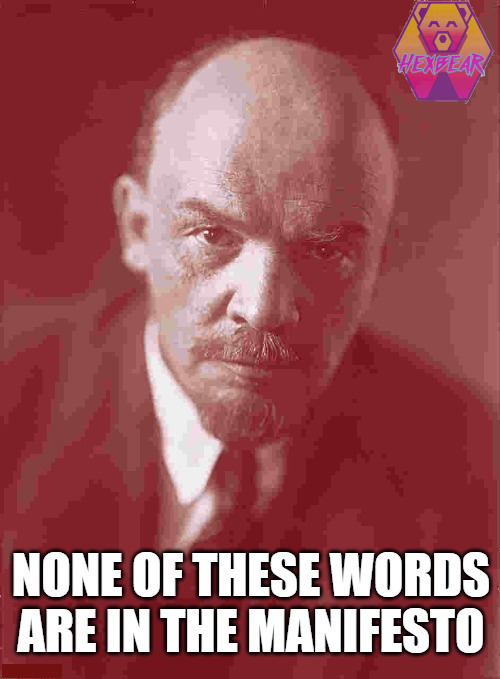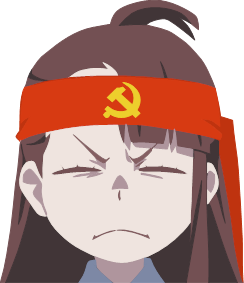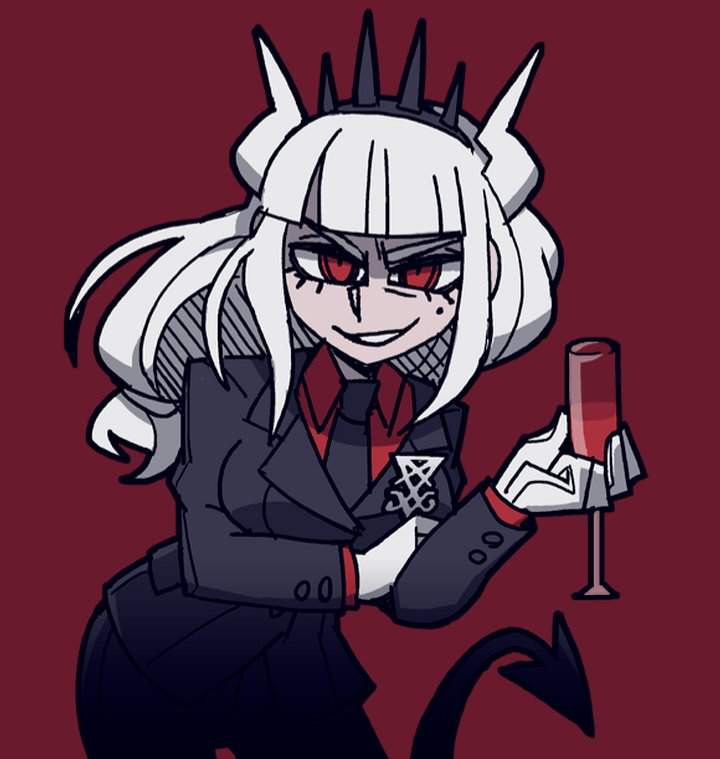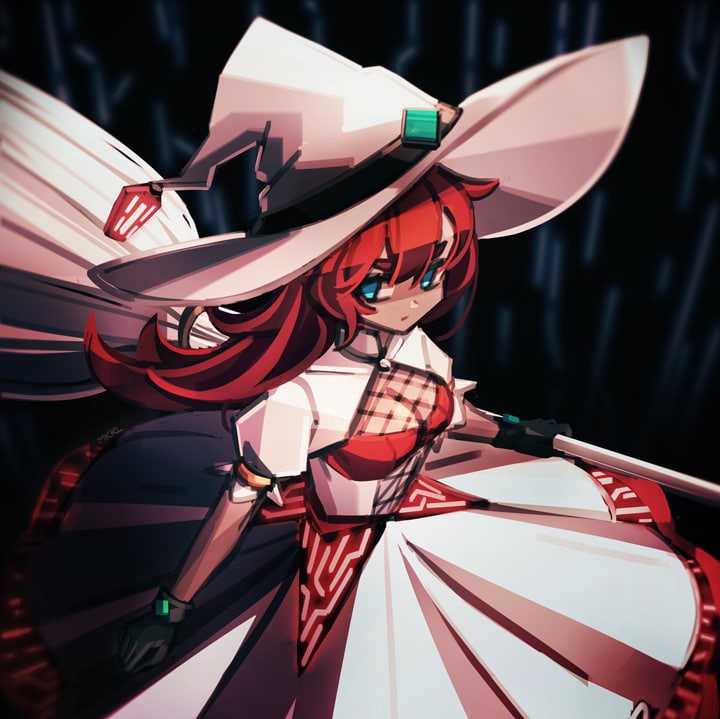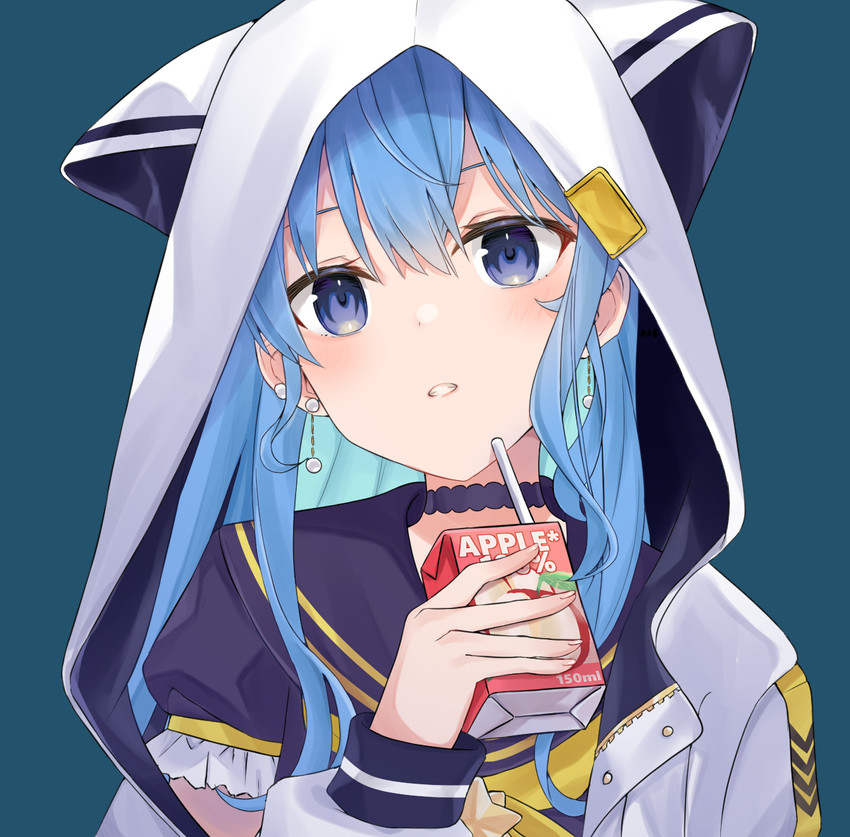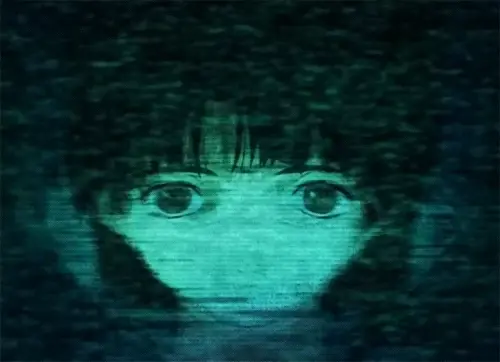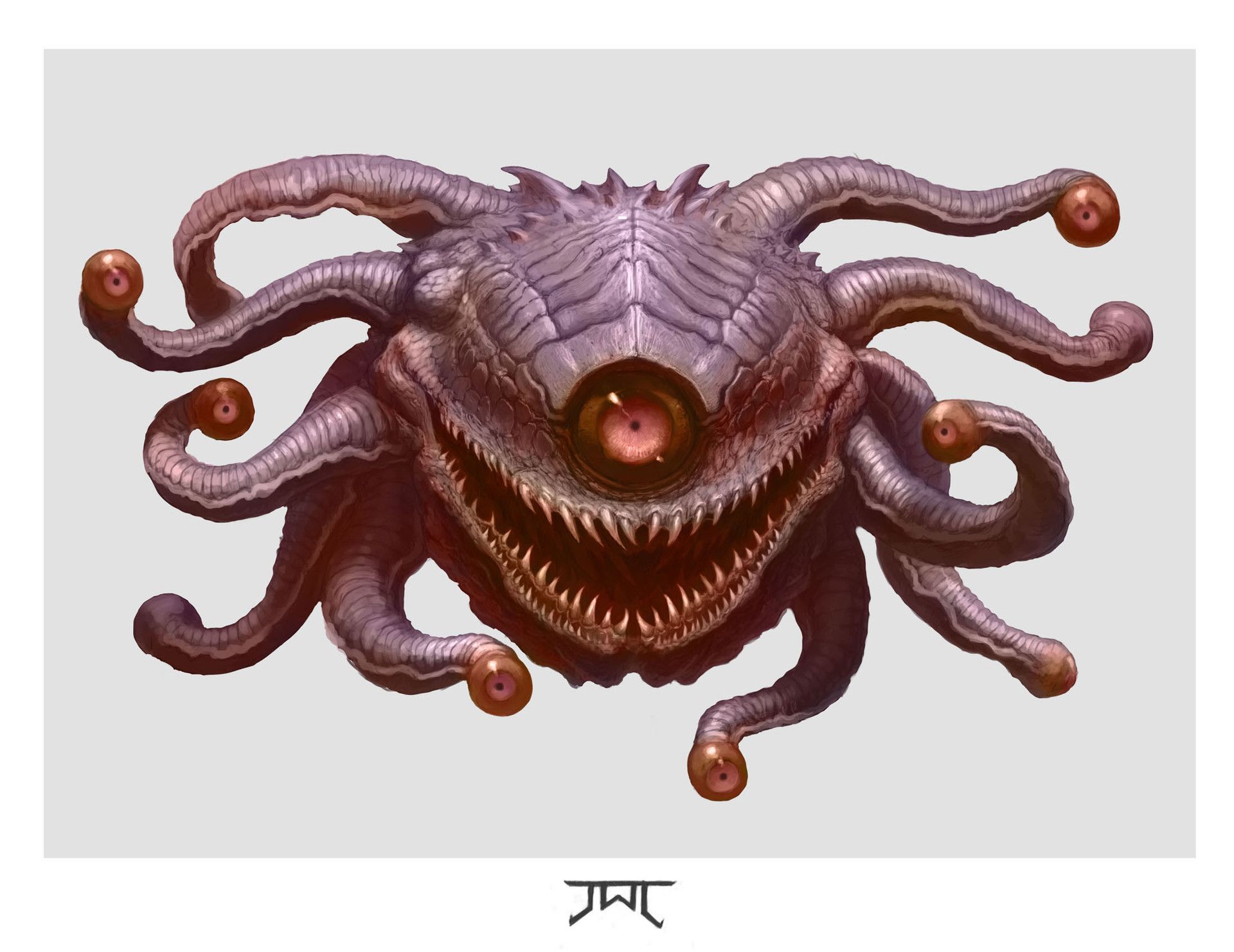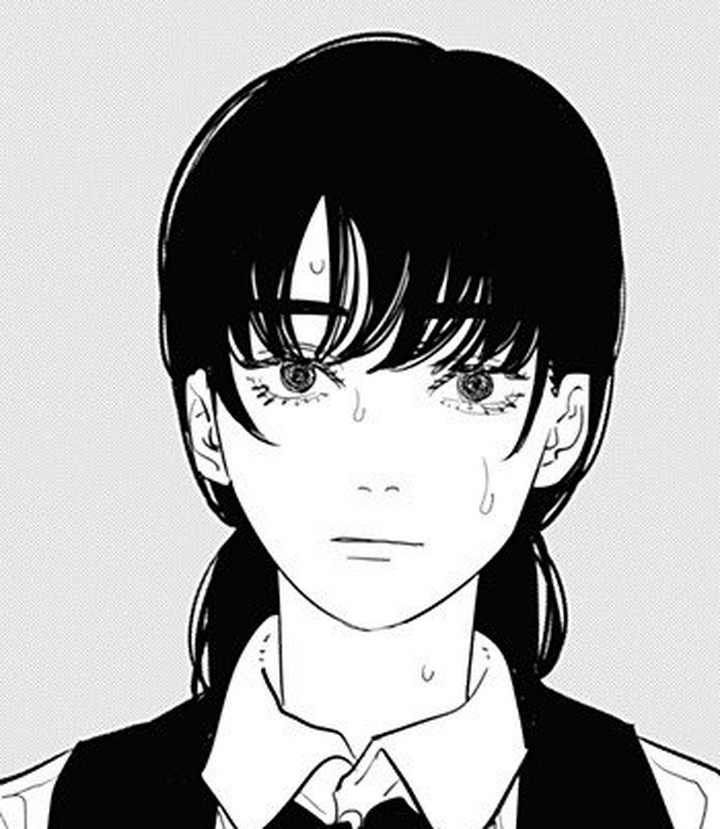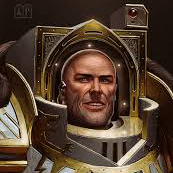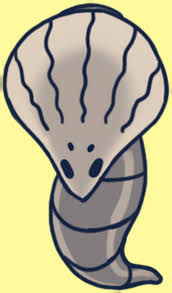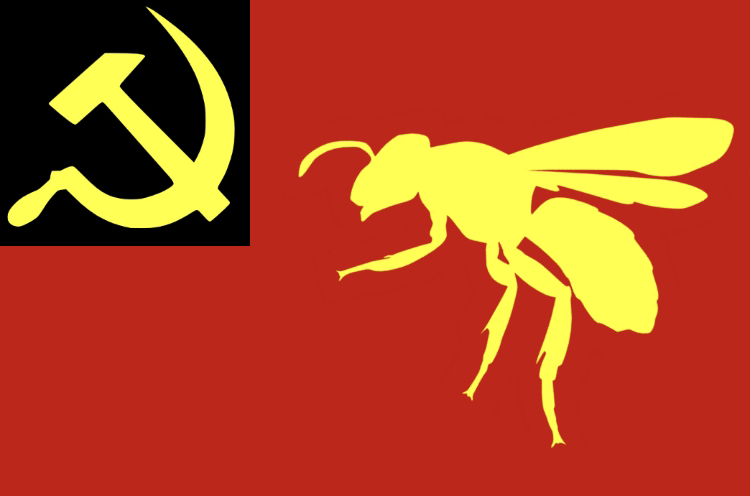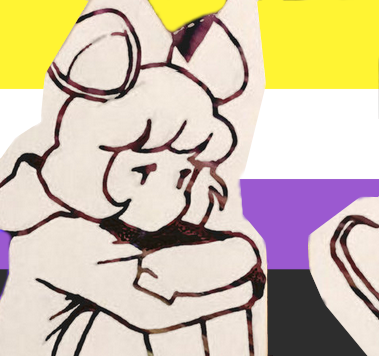Disclaimer; I’m never going to watch or read the rest of Attack on Titan. I think it’s a gross, misanthropic story. So if I’m completely wrong about the conclusion let me know n the comments
Since “media literacy” and “How could you say my blorbo is a fascist?” are constant and inescapable on the net, I was once again drawn in to the “Is AoT fascist?” discourse.
I stopped watching AoT during the first season because it’s a story of a bunch of valiant heroes grimly marching to their deaths in a war of annihilation against a teeming swarm of sub-humans who exist for no other purpose than to crush the light of civilization in an orgy of mindless violence.
Which is to say, the straightest possible portrayal of the fascist world view.
But many in the discourse argue that this isn’t fair, the author clearly shows that the protagonist is the bad guy, people are dumb and media illiterate. Well, I don’t want to watch four seasons of gorn just to weigh in on weird anime discourse, so let’s just look at a summary of the conclusion of the story.
Let’s see… minority with tainted blood who once ruled the world with an iron fist gains control over superweapons and immediately uses them to exterminate all of pure blooded humanity, even though he didn’t have to, as human history is a zero-sum clash of civilizations in which there is no possible alternative but an inevitable war of annihilation between those of pure blood and those of tainted blood. Also apparently The Jews The Marleyan Royal Family secretly set the whole thing in motion.
No fascism detected! What a relief! It’s a good thing the author expressed his view that racial war of annihilation is the only possible conclusion to the inevitable clash of civilizations! I was afraid he’d look directly at the camera and say “Everything that Hitler believed is correct and I have written a story reflecting that”.
Like, seriously, the story starts with the Jews Eldians engaged in an auto-cannibalistic war of annihilation, and the story ends with the protagonist, once noble and heroic, revealing his true Jewish Eldian nature by annihilating humanity for basically no reason. “Eren is the bad guy!” Yeah no shit, that’s exactly what the author said; The Jew cannot overcome his nature and will inevitably destroy the world no matter what. He set up a story where we sympathize with the hero, and then in the end the hero is shown to have inevitably turned in to a monster as the power of his tainted blood leads him to destroy real humans. It’s Race Realism: The Motion Picture
Or maybe I’m totally wrong. idk, because I don’t want to watch 40 hours of miserably nihilist murder porn written by someone who pretty obviously hates humanity.
Final thought; Isayama is Zach Snyder if Zach Snyder hated humanity.
For my next trick I will explain why Fullmetal Alchemist; Brotherhood is apologia for the crimes of Imperial Japan
Edit: I have observed that a lot of people are assessing AoT’s message based on what the characters say or do. I was recently introduced to the idea of “Diegetic Essentialism”, an emerging, often unconscious, belief among many people that media can only assessed within the context of the story, with the characters treated as though they were real people instead of puppets of the authors. Thus, “Isayama depicted all sides as miserable fascists” is considered important, rather than examining the world the author created and what that says about the author’s beliefs about humanity and life.
Here’s the post that introduced me to Diegetic Essentialism. From our buds over at /r/Sigmarxism, of course. I’d been struggling to articulate something I saw for a long time and this gave me a name for what I had seen.
Or maybe I’m totally wrong. idk, because I don’t want to watch 40 hours of miserably nihilist murder porn written by someone who pretty obviously hates humanity.
no you’re right, the author is a Nazi, and the manga ends with the blond kid thanking eren jaeger for committing genocide
AoT is fascist. The author is a douchebag and the general principle of the entire show can be related to Japan as a humiliated former empire. The general premise is supposed to be that they have been humiliated and trapped on their tiny island by the rest of the world and only through absolutely unmitigated extreme violence can they possibly break out and reclaim their place in the world. The show presents this as a bad thing that is ultimately necessary and that there is no other possible way.
A lot of people mistake the show for loose ww2 factions, ignoring the fact that a socialist faction is clearly not present at all. The show makes significantly more sense when you relate it to modern Japan and map it to what current ultranationalists and those sympathetic to the japanese empire feel about their past place in the world.
The Marleyan Blood nonsense is just mapping “the jews did this to us” into it all.
Or maybe I’m totally wrong. idk, because I don’t want to watch 40 hours of miserably nihilist murder porn written by someone who pretty obviously hates humanity.
No, you’re not wrong. It’s at best
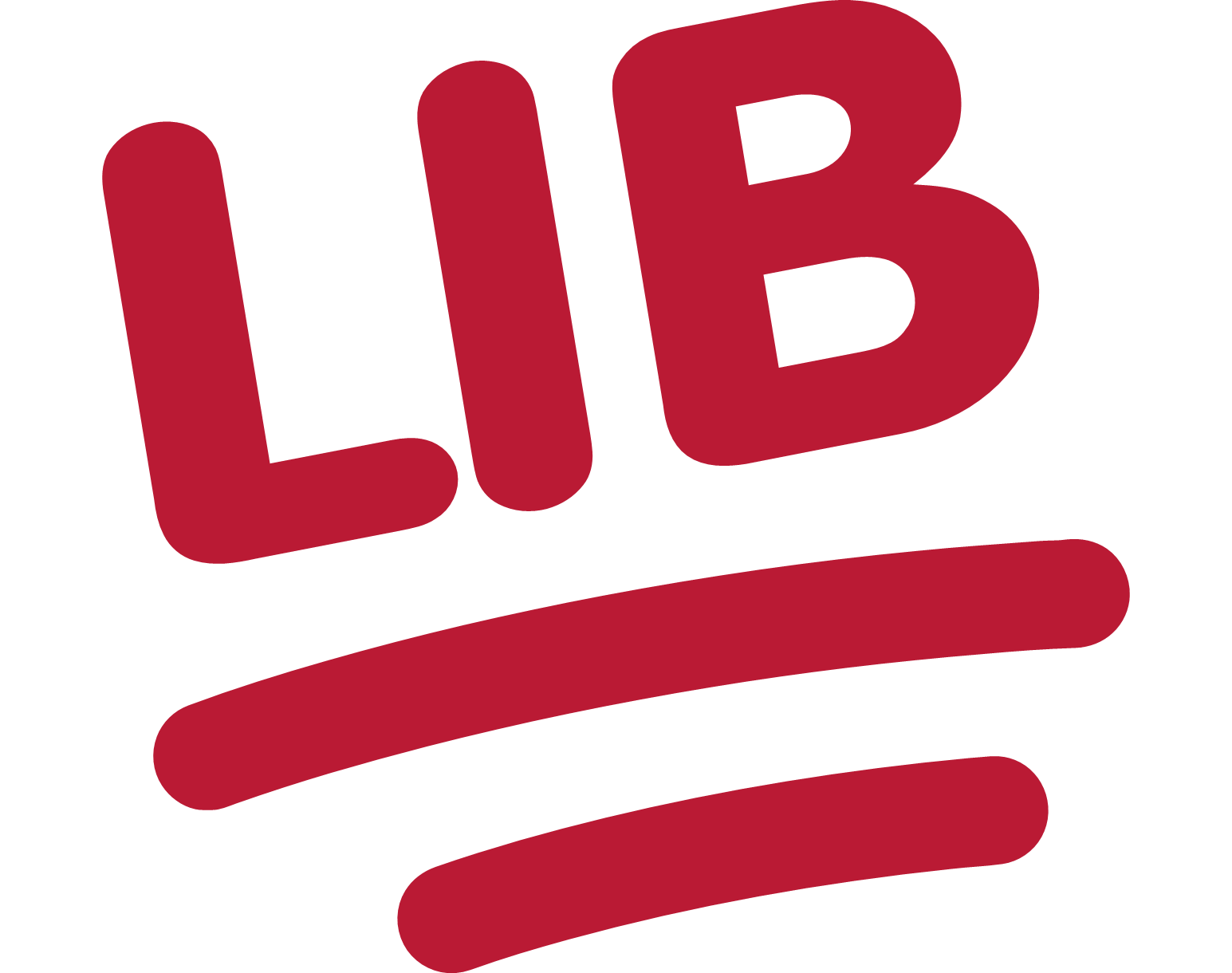 . And as we know, libs are just the moderate fascists.
. And as we know, libs are just the moderate fascists.The anime tried to be a bit more critical of Eren, but it’s ultimately very “nothing REALLY matters” lib/libertarian coded. The fact that even Eren’s genocide doesn’t actually do anything is a silly fucking cherry on top of a silly series.
Big Joel made the argument that The Lion King is fascist, as it portrays the hyenas as a race who have to be kept out of our territory because, due to their ravenous, insatiable nature, they will inevitable turn any area into a barren wasteland were they to be let in. And the movie validates that, as once Scar takes power, the hyenas do just that. It makes it clear that there is no peaceful coexistence with the hyenas.
And then Big Joel says that nevertheless, The Lion King “objectively slaps”. I forgot what his exact point was but the AoT discourse kinda reminds me of that.
The lion king does slap, tho, but it’s because Jeremy Irons manages to carry the whole production.
But yeah, the Lion King, beyond the aesthetic, is trash - the parasitic ruling class is justified by divine providence, the racially segregated minority underclass deserves it, the vegetarian prince who is trying to abdicate the throne is only a coward who eventually realizes his true divine calling to rule and consume. Classic Disney. Only a strong, masculine ruler can rightly guide the volk and keep the sexually ambiguous (hyena anatomy moment), mentally ill, minority coded untermensch under control.
Also funny because in Hamlet the machinations of the ruling class and the Prince’s uncertainy about the correct course of actions are all completely self defeating, with everyone dying miserably in the end instead of Disney’s “happy ending” that justifies the righteousness of the monarchy and restores the status quou.
Literarly analysis is fun!
Another thought; people often complain that when you explain the bare text of a story you’re “reading in to it” “things that aren’t there”, and sometimes this reflects more on that person’s humanity and good nature, that they aren’t able to see the rot because they simply do not view other people that way, than it does on the story.
For my next trick I will explain why Fullmetal Alchemist; Brotherhood is apologia for the crimes of Imperial Japan
Yeah, Attack on Titan is fascist drivel - I love pointing out to fans that Erwin is literally named after Rommel & Pixis is basically Yoshifuru Akiyama; but I don’t buy this lol.
I dropped it when I got to the ghettos with armbands.
At BEST it’s a hack series at that point.
But when you get into it - the Eldians ARE dangerous, as they can be mind controlled and turned into giant monsters.
They are fundamentally incompatible with the rest of humanity, as it just takes a single whim of their leader to set off a nuke.
Marley being greedy and evil and using the Eldians as shock weapons was wrong, and so was Titan-ifying them and dumping them on paradisio.
But the kings plan to keep the peace would eventually fail if the power made it to someone with strong will and hate.
This was a story setup to enforce a fascist worldview.
But when you get into it - the Eldians ARE dangerous, as they can be mind controlled and turned into giant monsters.
Counter point: they only turn into titans when they get injected by spinal fluid, which is something that has to be done to them
Nah, Founding Titan can activate them via a scream.
The injection is a more limited version.
But any founding Titan holder can make everyone with the right dna into a Titan.
Interesting read, even if I had no opinion on AoT since I haven’t watched much of it nor engaged in the discourse at all. Not necessarily because I’m averse to le grimdark (I like Berserk so…) but because the whiplashes of trying to shock you by showing established characters getting eviscerated in gruesome detail got old past the first Titan attack.
I will say I like you pointing out how something so obvious as authorial intent is almost always overlooked by defenders of a given piece of fiction.
For my next trick I will explain why Fullmetal Alchemist; Brotherhood is apologia for the crimes of Imperial Japan
As someone who loves that anime and has rewatched it on a couple occasions, I hate the way the Ishvalan genocide is handled with a passion.
I would say, and this may be a stretch, that as horrible as the world is Berserk is fundamentally optimistic and has a positive view of mankind. Guts whole thing is that he never gives up even when he comes literally face to face with incomprehensible Eldritch evil. He’s not a hero, he’s just some guy who happens to be really good at killing, but he’s doing the whole irrepressible human spirit thing, trying to help Casca, trying to help his friends. Admittedly, it’s been a long time since I’ve read Berserk, but the core message I remember, aside from all the cool violence, is that you can keep fighting even when it seems like it’s hopeless, and you’re not a fool for doing so.
AoT says it’s all pointless, violence is all there is, and humans are scum. Berserk says fuck that, I am going to kick the metaphysical embodiment of evil in the nuts and keep going.
I can handle a lot of violence, but the why of the violence matters. Like that scene in the Golden Age arc isn’t to show that humans are evil, it’s to show that raw, unfettered ambition is horrible and destructive. Griffith isn’t bad because humans suck, Griffith is bad because, in despair, he decided to kill all of his friends for one last chance at power. Guts, Casca, and many of the other characters value their comrades more than any of their ambitions, and Guts in particular doesn’t give in to despair even when he is totally, utterly fucked. All his friends die, but Guts goes in to Shonen Protagonist Determinator mode and escapes when all fate and destiny says he should have been both physically and spiritually slaughtered. And then he just keeps going. Guts is a foil to Griffith’s nihilistic hopelessness. Guts says that we don’t have to give in to evil, we don’t have to give in to fate, we don’t have to give in to a world of cruelty and oppression. We can fight, and there is honor and dignity in that fight, even if we ultimately lose.
So, to me, Guts is a positive, supportive figure for people facing hardship, loss, and pain. I’ve got some chronic illnesses I’m probably not going to survive. I might live a long time, maybe even beat the average, but what’s most likely going to get me in the end is things I’ve been carrying inside me all along that I’ll never be free of. Guts represents a figure, literally disabled by the loss of his eye and arm, who just keeps going in spite of his hardships. He’s not pathetic or pitiable, he’s not trite inspiration porn, he’s a much larger than life heroic figure of a disabled person using a giant goddamn sword to cut metaphorical evils in half. I don’t want to be like him, he’s a shonen protagonist. But i can imagine nodding and fistbumping as we pass each other on the street, on our way to fight our respective demons one more time.
What you’re attributing to diegetic essentialism is the Thermian argument: using in-universe lore to deflect criticism. Slightly different thing.
Diegetic essentialism is when people (including leftists) flatten all meaning in a work in order to put media into boxes. The examples given in sigmarxism are Beasts of Chaos and Tau being written with superficial anarchists/communist aesthetics, so therefore BoC are anarchists and Tau are communists. (Neither of those things are true)
We do this because we need to let our in-group know that we’re watching the “correct” media, that we’re completely unproblematic because the media that we consume is completely unproblematic. (It doesn’t work that way)
Let’s use Attack on Titan as an example
I think it’s somewhere in season 3-
There’s a moment where the main character, who’s basically spent his whole life being taught to hate a dehumanised enemy, finds out that the “monsters” who destroyed his life are people exactly like him, scared children who were also taught to hate a dehumanised enemy: him.
And that shoe dropping makes such a potent anti-fascist message, because it lays bare in narrative form exactly how fascism fails, how it warps and distorts history in order to perpetuate a lie, because we’ve been with Eren from the start and seen his journey, and his shock at this revelation is echoed in the shock of the audience. It’s legit good storytelling.
And if AoT ended right there things would’ve been fine, but oh well.
My reading of AoT: AoT is the single most incompetent anti-fascist story ever told, that it warps right back around into endorsing fascism and anti-Semitism. This is because Isayama is a liberal: the moral of his story is “an eye for an eye makes the whole world genocided”, which is an idealist idea of fascism, a child’s understanding of fascism. Eren revealing himself to be a petulant manchild committing genocide because he’s afraid of losing his mother figure is supposed to be tacit condemnation, but Isayama still lets him get away with genocide, like the liberal he is. We’re just supposed to feel bad about it.
Anyway, going back to diegetic essentialism: anyone who asks “Is X piece of media ______” is deeply unserious and more often than not simply looking for validation of their own political beliefs. Art/media criticism is about deeply and seriously examining human subjectivity, to explore what that tells us about the world we inhabit and the people who inhabit it. Within us there are multitudes, and not even authors have the authority to dictate the meaning of their works- we have to determine that meaning for ourselves.
Diegetic essentialism is when people (including leftists) flatten all meaning in a work in order to put media into boxes. The examples given in sigmarxism are Beasts of Chaos and Tau being written with superficial anarchists/communist aesthetics, so therefore BoC are anarchists and Tau are communists. (Neither of those things are true)
This isn’t what diegetic essentialism is at all. Diegetic essentialism refers to ignorance of the author’s intent and a treatment of a story as if it is “real”. That post did mention what you said here too, but diegetic essentialism is a separate but connected phenomenon, most prominently seen in “but female spus marines don’t exist!” debate bros.
OP links the post you’re citing, I find it unlikely they didn’t read it.
Right, what I was trying to get at is the “essentialism” part of DE, which I think is the more important aspect to emphasize.
OP links the post you’re citing, I find it unlikely they didn’t read it.
Sure, but I am doubting he fully understood it if reading
Or, not to put this user on blast, but the recent “Chorfs are capitalist?!??” post is another great example. It would be one thing if we could examine the story and see their mode of production and, wow, look, the author included enclosure of the commons and theft of surplus value, I wonder if that was intentional? But no. The argument is “Chorfs are greedy industrialists. Capitalism has greedy industrialists. Chorfs capitalist?!??”
Lost in this kind of nonsense are basic critical questions. E.g., what was the author(s)’ intent? What is the value of this criticism? Is this what the story is about, or is there only incidental interpretive evidence?
would result in a thread where OP did a wikipedia cliffnotes reading of AoT asking if it’s fascist.
My lit prof would have had my head on a pike if I tried to write a paper with this methodology.
(Also, to be clear, I’m not even saying his conclusions are wrong, Isayama really is Zach Snyder if Zach Snyder hated humanity.)
For my next trick I will explain why Fullmetal Alchemist; Brotherhood is apologia for the crimes of Imperial Japan
Yes please
Also, +1 on the mention of diegetic essentialism
Is ______ fascist?
Let’s just assume yes
wait until we get “is jujutsu kaisen fascist” discourse in a few years (spoilers: eyup, that’s a fascism)
Well it’s already at “eugenics is required to defeat curses” and “every other nation but japan has few people with enough
inbreedingspiritual power to become sorcerers” so I can’t say I’m surprised.Nah bad take. It’s pretty clear in the text that Geto’s plan to eliminate curses was wrong and just driven by his hatred of non-sorcerors, and also there are also other ways to get rid of curses, like getting rid of cursed energy or teaching everyone to control their cursed energy. Also sorcerers are most common in Japan because of Tengen’s barrier, not because Japanese people are special.
There are also good queer characters, a lot of anti-conservatism and some anti-capitalist messages.
Sukuna has been disproving Eugenics for the past 3 months in the manga.
Adding that to my “didn’t watch, dodged a bullet” anime list.
It has nice animation but otherwise very boring. First season felt like a slog, definitely dodged a bullet
a show: has all the best parts of naruto, bleach, and hunter x hunter mixed together
nerds: this show is fascist
p.s. btw nerds the only shitty part about it is that the author fridged Kugisaki Nobara and it’s really ambiguous whether it’s permanent or not.
y’all’d give 10000 upvotes for this scene and you can eat my ass if you lie and say otherwise
shows can be fascist in some ways and based in others. unfortunately, fascism is the anime curse
I found a YouTube link in your comment. Here are links to the same video on alternative frontends that protect your privacy:
Not anymore than like any other superhero thing imo. Yeah it sucks but it’s more of an indictment of the genre
Heh, I watched a leftist youtube essay on it a couple months back. The narrator’s takeaway was a lot of anti-capitalist, anti-conservative themes.
The diegetic essentialism post is fuckin sick.
I want your next trick sir, I’m burnin’ for rhat FMA: Brotherhood post!
I just recently watched a video on this subject. The video itself wasn’t very illuminating about the subject, but a pinned comment was:
Pinned by The Morbid Zoo @ssoftiss 2 years ago Thank you for your video, I agree with a lot of your points. What I think did get lost in translation might be some of the references to Japanese history and common current mindsets in Japan. You mention how it is not easy to identify whether the Eldians are supposed to represent Germans or Jews. Actually I think they are supposed to represent the Japanese … and that is not a good thing.
A summary of ‘sakoku’ in Japanese history: Medieval Japan (think Samurai-Era) felt threatened by trade from Europe (Portuguese, Dutch…) who also tried to bring Christianity to Japan. The feudal government at some point closed of the Japanese borders completely and only allowed very limited contact to the outside world. I hope the parallels to Eldians on Paradis Island are obvious enough. Interestingly, many Japanese feel that this step was not a free choice but a last resort to protect Japanese interests. As we all know, the Industrial revolution brought on a rapid technological advance in the western world. Japan was closed off for about 200 years, until the US decided that they were going to force Japan into opening their borders - with their advanced weapons. Just like Paradis is confronted with being wiped out by their soon to be technologically advanced enemies.
Japan during WWII and ethnic uniqueness: In Japan during WWII there was a strong propaganda to create the belief that there is an inherent Japanese-ness which is still prevalent today, not only with far-right activists. If you study any Japanese art you often come across the mindset, that only Japanese might ever be able to fully understand that certain art - simply because they are Japanese, and outsiders may never reach that level. In AOT the Eldians are genetically different from the rest of the world.
Contemporary Japanese views on WWII: The Japanese school system does not include a lot of WWII lessons. So for most regular Japanese citizens, their knowledge about WWII and especially the war crimes is not very broad. This strenghtens opinions like ‘my generations has had nothing to do with this war, so there is no reason for apologies or reparations nowadays’ or ‘It’s all in the past and has nothing to do with today’. Even though there are still ongoing conflicts (e.g. South Korea and sexual slavery, euphemically called the ‘comfort women issue’). Such beliefs foster a victim mentality. And in the case of AOT, I fear this was translated into showing the Eldians as being discriminated against - comparing them to how the Jews were discriminated. Which would be quite a sickening comparison.
To sum it up, Isayama did portray the Eldians as being on an island nation that is technologically not as advanced as the rest and is thus confronted with an outside threat of being eliminated. This is so close to actual Japanese history that it is not far-fetched to think that Isayama is protraying Eldians as Japanese. Isayama also portrays Eldians as the victims of discrimination, going so far as to bring in themes of how the Jews were treated during WWII.
I think the ending actually made it clear that Isayama - even though he might not be a full on right-wing nationalist - is leaning towards some of the arguments that are right-wing. The ending shows that Armin sympathizes with Eren’s decision - because he did it ‘for the greater good’. Being a fascist does not only mean being cruel just for the sake of being cruel - it also means to justify cruel actions by it being for a greater good. And that I think is exactly what the ending of Attack on Titan is doing.
I too have been defending AOT since the beginning. But rewatching the series now, I feel like I interpreted many things too liberal, because that was what I wanted to see. Take that scene, where so many refugees are sent back outside the walls because the government was afraid of a food shortage. Reviewing that scene I think there is already an undertone of it being for ‘the greater good’, of it being a necessary evil and thus - justifying such a horrenduous act.
Same goes with the scene where Erwin decides to order his soldiers to give their lives, just for Levi to have a chance to attack Zeke. Rewatching this scene, I think it actually was portrayed again as a necessary evil. And that would be fascist. Just like how in real Japan during WWII air pilots were ordered to fly their planes right into the enemy, the infamous Kamikaze.
I’m sorry this got so long, no one I know watches the show and I needed an outlet for all of my thoughts after reading the last chapter of the manga.
I think if you consider these points, the ending should not have come as such a big surprise. I really should have seen it coming unfortunately…
Good points all.
I found a YouTube link in your comment. Here are links to the same video on alternative frontends that protect your privacy:
One of the characters in the final season tells the Jaegerists that if they kill off all non-Eldians, they’ll just make another outgroup to target. A true statement on fascism, but it felt out of place considering the rest of the series, as well as the author.
I await the Fullmetal alchemist post. Both series rubbed me the wrong way for reasons I can’t quite put my finger on. Yes, part of it is the fascism, but I think it went beyond that.
The short version is that the whole story is about how sad the officer corps is for willingly and enthusiastically murdering millions of people, and that they’re so moral and principled that they just need to do a military coup against the evil king, install a junta, and then they’ll make up for all the genocide because they just have so much good will. The core of the story is that the officer corps that actually did the genocide (in Germany, in Poland, in China) is moral and good, they just had a little accident and can restore dignity and honor to their nation all by themselves, no US or Soviet interventions needed. It’s a Japanese nationalist plot that figuratively absolves the Imperial Japanese state and whitewashes their crimes.
I enjoyed the series, it has a lot of neat ideas and great characters. Greed is a stand out depiction of how to write a compelling evil character that isn’t a puppy kicking dumbass. But when you place it in the context of the 20th century whooooo boy.
I think you might be right, but honestly it felt like the whole point of the story was that people and relationships are the most important thing in life, which was demonstrated when Edward gives up his alchemy for his brother.
Perhaps the whole redeemed evil empire was just an accident born from wanting the state to be kind of obvious bad guys, but needing a storybook happyish ending. At least most of the alchemists who participated in the genocide seem to be very disgusted with their actions and seem to actively suffer from it.
